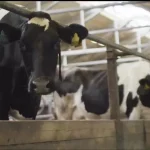
The Canadian proposal is a direct result of a panel decision in December that ruled in favor of U.S. complaints that Canada is manipulating the quotas negotiated in the U.S.-Mexico-Canada Agreement.
“For us, this is just moving the chairs around, but it’s the same chairs,” stressed Jaime Castaneda, executive vice president of the National Milk Producers Federation and the U.S. Dairy Export Council. He said the proposal offers the same opportunities to Canadian processors to dominate the quotas.
“The USMCA makes clear that the parties must try to resolve a dispute after a panel report,” Assistant U.S. Trade Representative for Media and Public Affairs Adam Hodge told Agri-Pulse Thursday in a statement. “The United States has not agreed to a resolution with Canada, but we continue to talk about implementation of the panel’s findings and hope to reach a resolution.”
A core component of the NMPF and USDEC rejection is Canada’s insistence that major Canadian dairy processors would maintain control over their ability to use the quotas for U.S. cheese, condensed milk, skim milk powder, yogurt, buttermilk, whey, ice cream and other products.
U.S. industry representatives complain under the current quota policy, it is far too hard to export higher-value dairy products like cheese to Canada because Canadian processors have too much control over importing licenses. Canadian cheese importers have similar complaints, saying the process handicaps their ability to get U.S. products.
As the situation stands now, Canadian processors get 85% of the quota for cheese and Canadian distributors get just 15%. Furthermore, the processors get access based on market share, meaning the biggest companies get the biggest share. Distributors, meanwhile get allocations on a straight “equal share basis.”
The Canadian proposal would alter the cheese quota to give 100% of the allocation to both processors and distributors. The problem, says Castaneda, is that it would all be on a “market share basis” and that means the large processors would again have control by the reason of their size. The quota also does not include Canadian retailers, who are major sellers of U.S. dairy products in Canada.
It is unclear if the Canadian proposal will have any benefit for U.S. dairy exporters or Canadian food service companies who use lots of dairy products, said Castaneda.
“This could be manipulated in such a way that they are doing the same thing as before,” he said.























